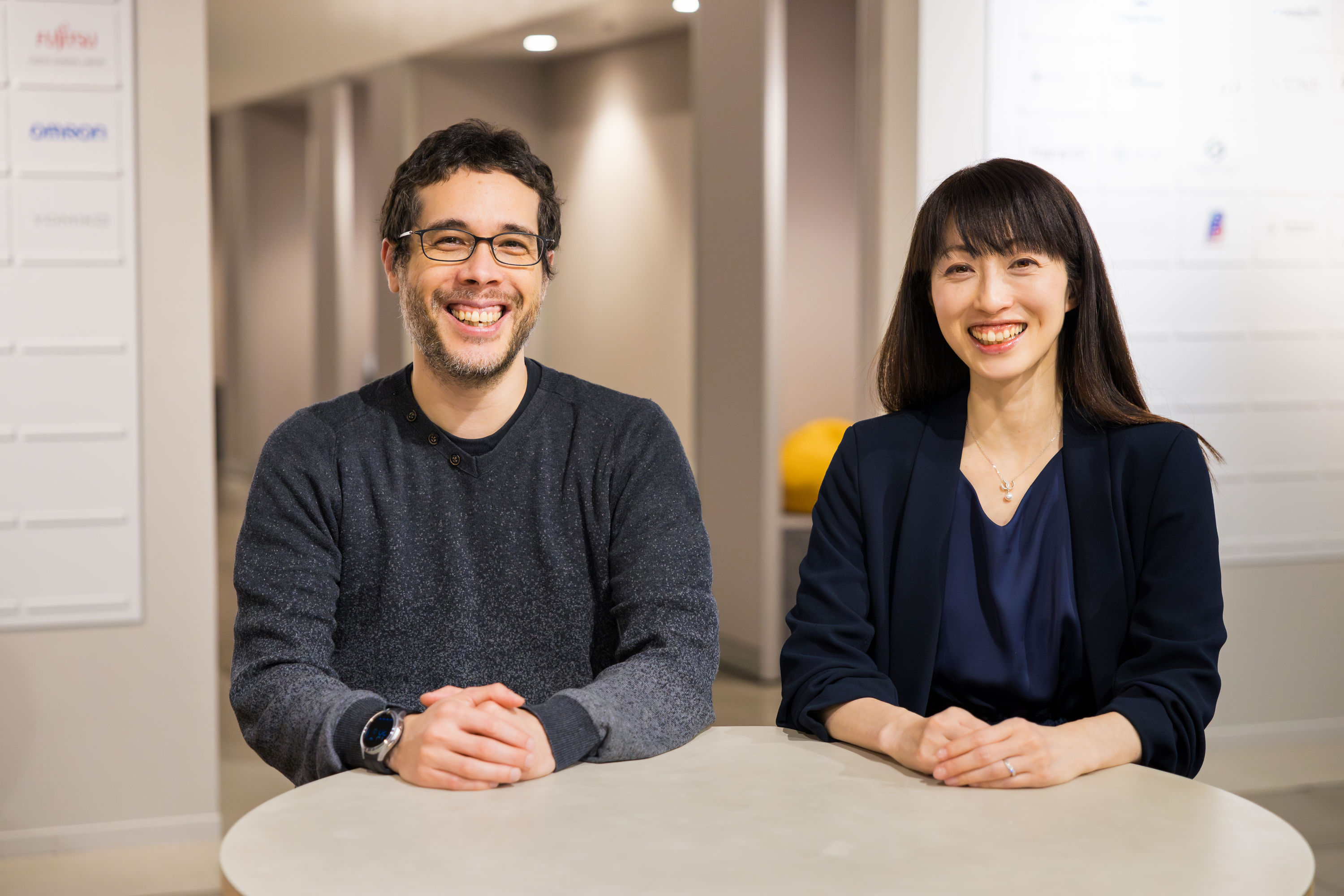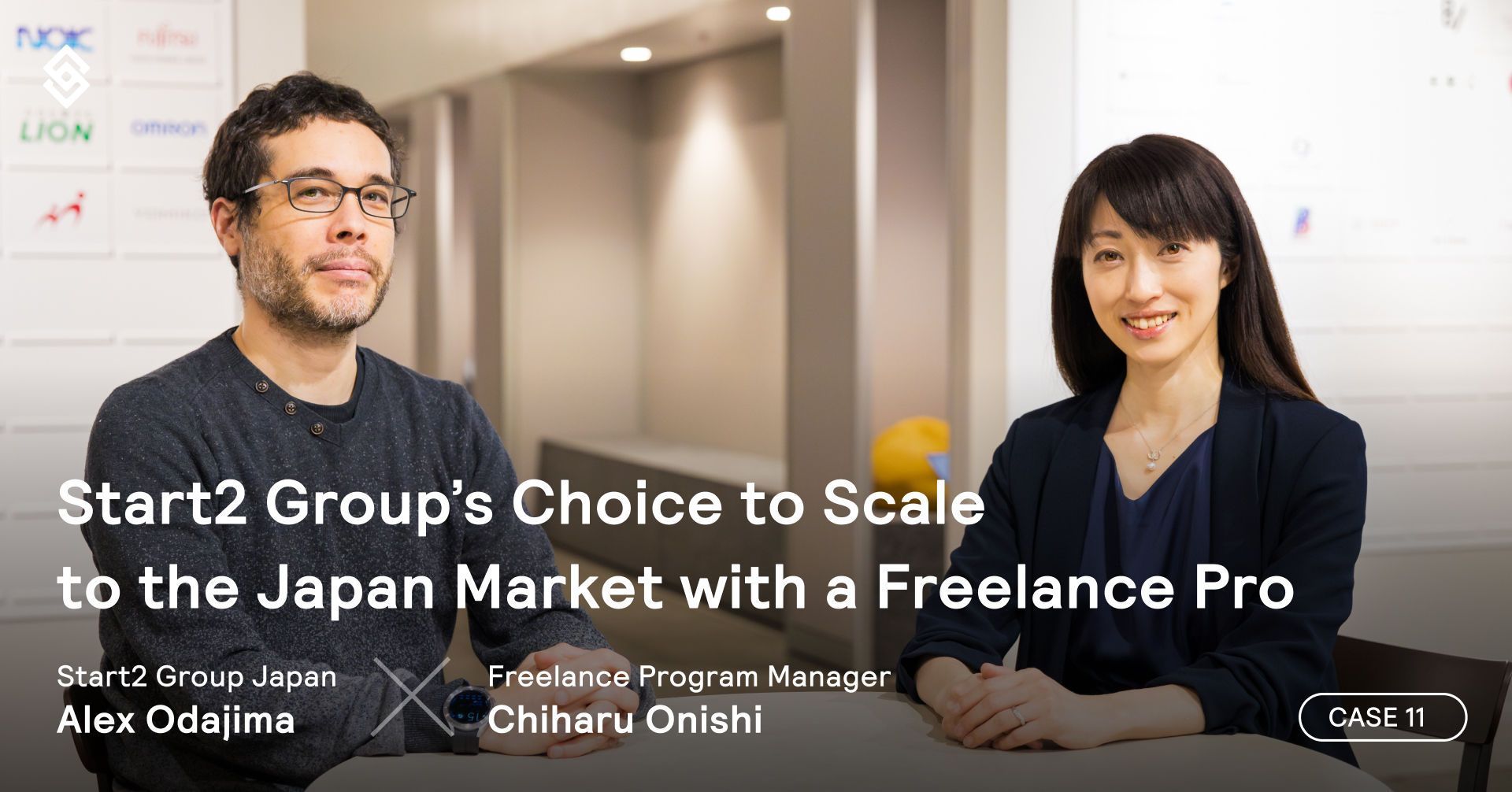
Start2 Group’s Choice to Scale to the Japan Market with a Freelance Pro
Up until recently, Singapore served as Start2 Group’s only Asian office and regional headquarters. The company has now expanded its operations with the newly formed Japan office, led by the Japan Representative Director, Alex Odajima. Since its official opening in 2023, the Japan office has been focused on expanding Start2's operations in the country.
Working alongside him is Chiharu Onishi, Program Manager. She and Alex have been working together for the last 6 months, trying to rapidly grow and organize new programs within Start2 Japan and expand the business.
This interview explores Start2’s vision for expansion, Alex and Chiharu’s collaboration, and words of wisdom for startups, enterprises, and all businesses entering or considering entering the Japanese market.
Start2 Group’s Opportunity-Driven Expansion from APAC to Japan
ー What were your goals for expansion in the Japanese market?
Alex: So we’ve actually been operating in Japan since 2019. In the beginning, we were operating as a company called German Entrepreneurship Asia, based out of Singapore.
Over time we started doing more and more work with the Japanese government, which eventually necessitated a proper Japanese business entity.
Right now we’re working with the Tokyo Government to bring Japanese startups to Germany; and we’re also helping German startups come to Japan as well.
ー Why focus on Japan, given you’re already situated in Singapore?
Alex: Asia is full of interesting markets, but Japan is particularly interesting because of its large market size, infrastructure, and low corruption. The downside is that sometimes business can move slowly here.
ー Did you anticipate any challenges before setting up operations in Japan? How’s it compared to other markets?
Alex: Well there’s a myth about Japan being a mysterious country where it’s impossible for Western companies to do business in. It’s not true, but every country is different.
For example, Japanese businesses are hesitant to change. They don’t want to be the first in the market – they only go to market if they know it’ll 100% succeed after careful planning.
If you compare Western and Asian countries in general, some countries like Japan and Korea really value having a face-to-face relationship before there’s enough trust to do business together.
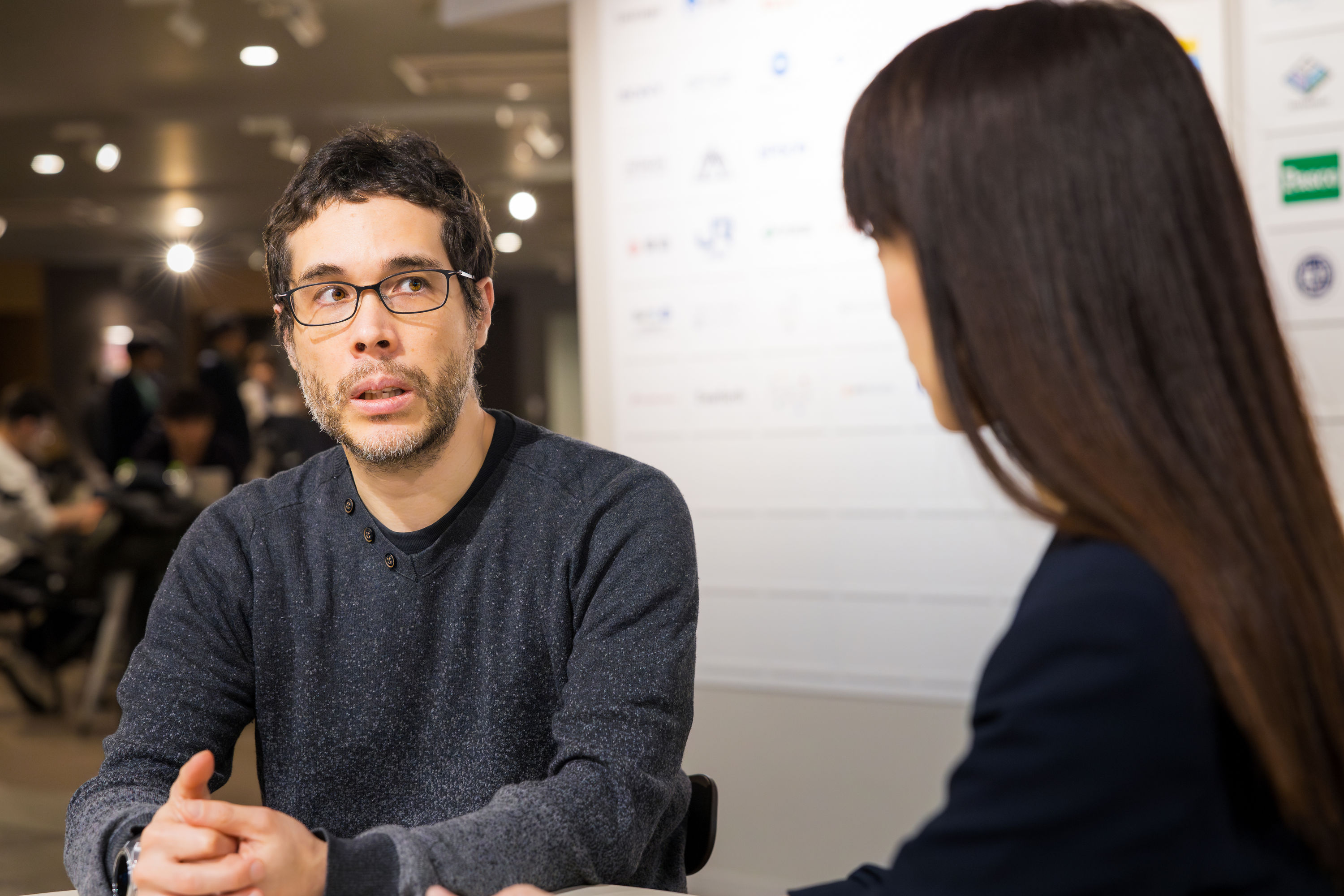
Full Time Employees Might Not Make Sense for Starting Operations in Japan
ー You decided to bring on a Program Manager. It also sounds like having a bilingual person would be important given the context of your operations?
Alex: Expanding the Start2 network, generating attention for us, and expanding our operations is my main role. With the increasing amount of work in our collaboration with Tokyo, there was no way I could handle growing our Japan operations by myself.
We needed a program manager that could handle communications between Japan and Germany for our Scaler8 and German Accelerator programs, which send approximately 5 startup cohorts between Japan and Germany annually.
This role requires a lot of detail-oriented work that makes bilingual skills super important because they would have to coordinate events between European and Japanese companies across time zones, and work on documentation and applications with the Japanese government in English and Japanese.
At a minimum, we needed a person with basic understanding of startups and acceleration programs and is capable of communicating with Japanese entities on the ground.
ー Were you looking specifically for a freelancer?
Alex: No, I don’t really care if we hire full-timers or freelancers. I’ve actually been a freelancer for 16 years, and having also been a business owner, I don’t really see the difference.
Okay, actually, this might sound a little extreme but: I personally believe that everyone should be a freelancer.
In Japan, sei-shain (full time permanent employees) are considered safe, right? But it’s not safe. As a company, contracts aren't going to force employees to stay forever; they can just quit if you’re not an attractive company to work for.
As sei-shain, it’s not like you’ll keep your job if the company fails or does poorly anyway.
ー Wow, that’s a pretty different opinion than I usually hear.
Alex: Well, I’m probably speaking a lot from my experience of building companies from zero. But among a lot of the VC (Venture Capitalist) community, we’re already talking about how with AI, company sizes will soon shrink. Freelancers will be able to do the work of 10 employees. There might even be 2-person unicorn startups in the future.
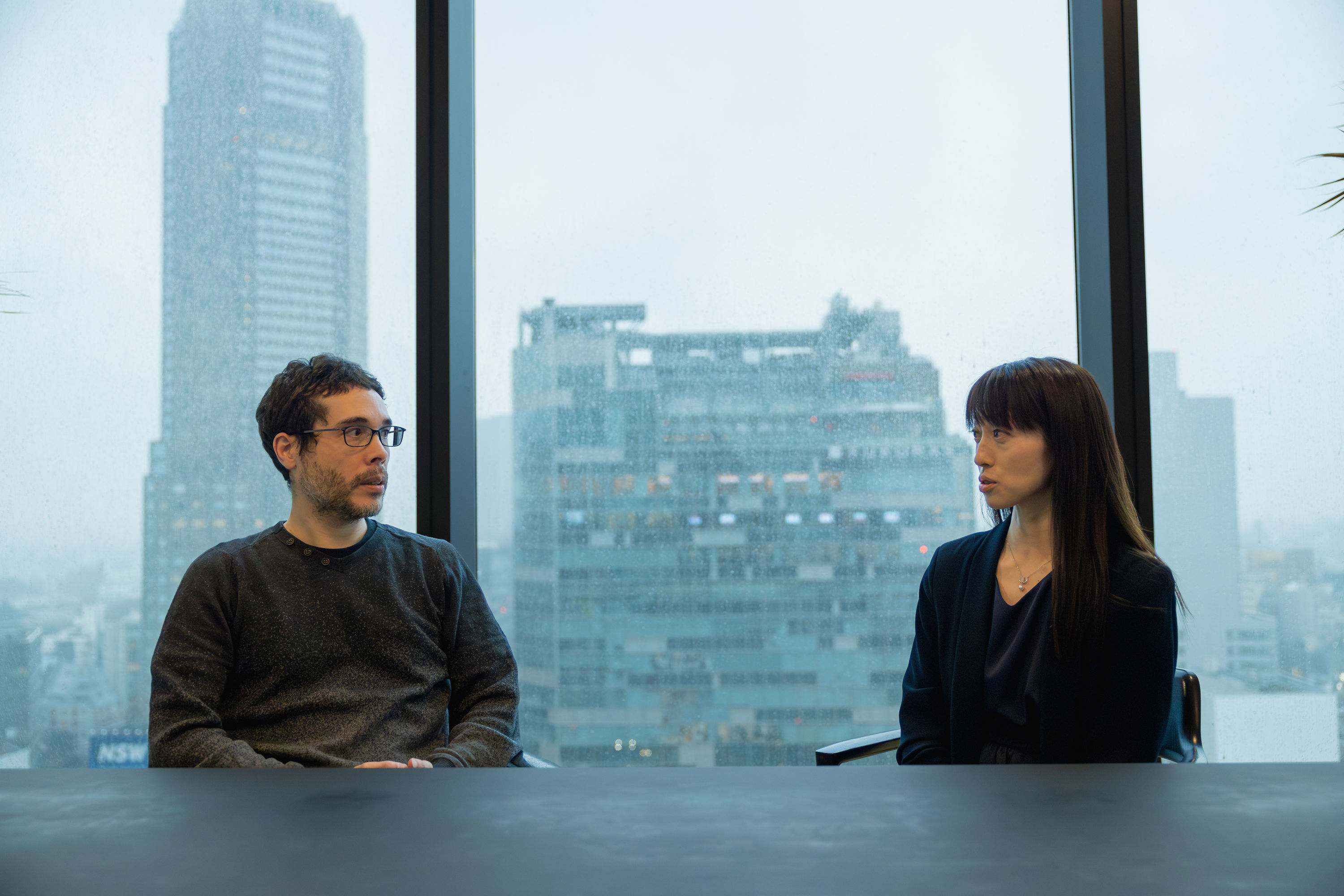
Looking beyond Job Titles for a Perfect Candidate
ー Even though you were originally looking for a Program Manager, Sollective introduced you to Chiharu, who is a HR Consultant, how’d that work out?
Alex: Yeah, we were definitely looking for a Program Manager, and so I was surprised when I saw her title was HR Consultant.
But I spoke to Sollective team, and they explained that Chiharu’s work in setting up HR Programs was actually really similar to what we need. Because she’s also worked with global companies and startups before, we decided to meet on Sollective’s recommendation.
ー Then this would be a great time to have Chiharu introduce her background.
Chiharu: My typical freelance work involves training and coaching of managers as well as teams. I’ve worked for multinational companies to help their teams in many different markets like: India, Spain, and China in addition to Japan.
ー So given this is a different title than ones you’ve taken before, how have you been adapting?
Chiharu: Through this opportunity, I realized that I’m actually really good at program management (laughs).
So, one of the reasons I decided to go freelance in the first place was because I wanted to share my knowledge and be able to positively impact so many executives and companies around the world. Being able to support the connection of people and improve their careers is my passion and happiness.
With Start2 I’m able to use all the people skills and the organizational skills that I’ve developed over the years. Actually, since a lot of the work I do with Alex is with the Japanese government, I’ve started to really like doing paperwork.
Alex: You like government paperwork?!
Chiharu: (laughs) I’m starting to really like using paper again since the government still requires a lot of physical documents. Communication is super important when working with government agencies in Japan, so it really pays off to learn the process and be in constant contact with the government office.
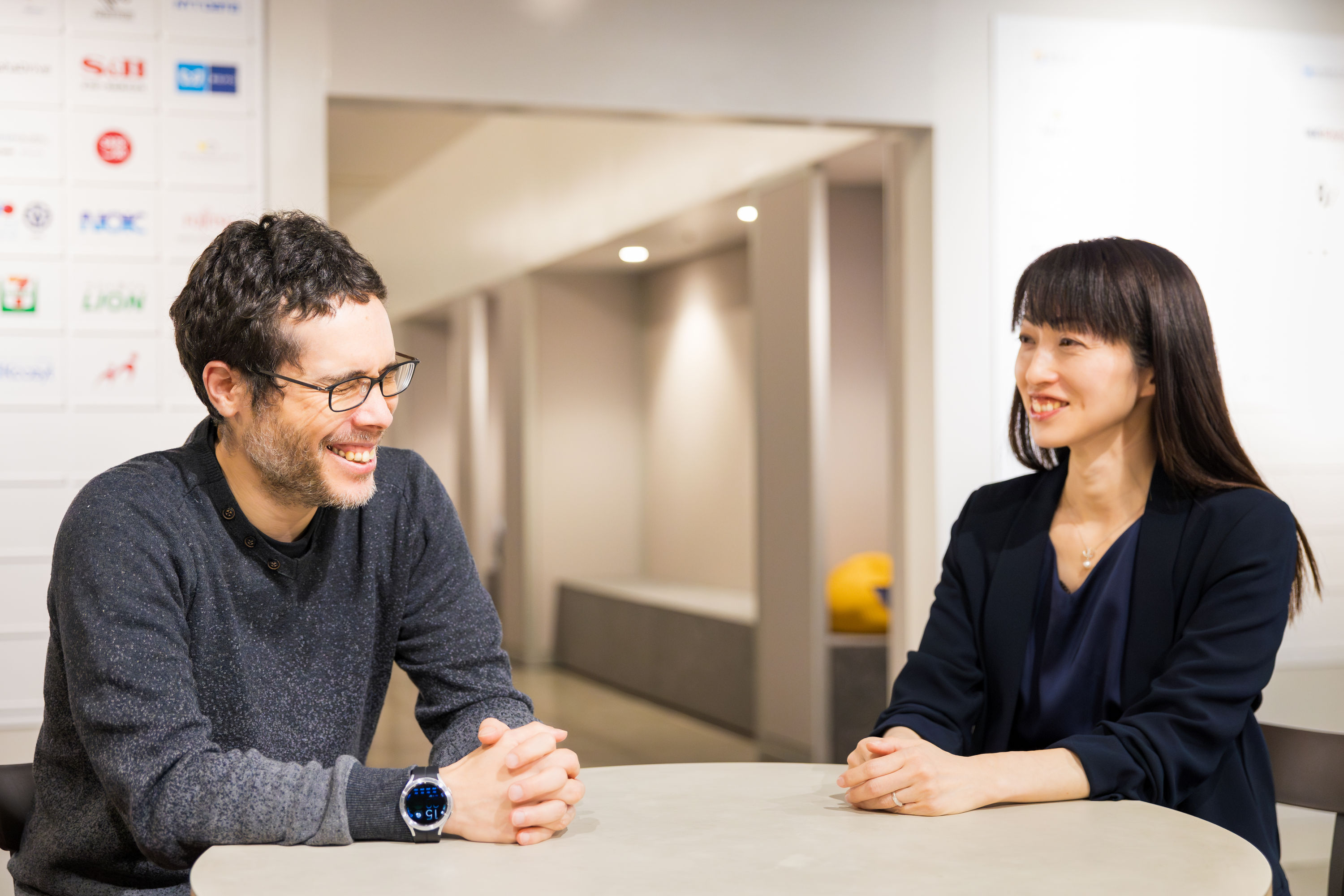
Working Together to Find the Best Family-friendly Work-Life Balance
ー It sounds like the collaboration thus far has been going well?
Alex: It’s been very easy to work together. Working with a pro like Chiharu, I don’t have to explain every little thing. To be very frank, I’ve had bad experiences in the past with two types of people:
1. People that you have to explain everything to; they have no ability to act on their own. 2. Then there are people who are so sure of themselves, but produce work that’s so far off from expectations that we have to start from scratch again.
With Chiharu, the balance is perfectly right.
Chiharu: Well I’m really glad to hear that (laugh). From my side, I really like the work-life balance working with Alex. I have two daughters and the youngest is often sick. Since we’re mostly remote, I’m able to make sure I can focus on my family as well as work.
Alex: I have a 10 year old son myself, and I know what it’s like for a child to get ill or be running around the house. I don’t care when the work gets done, results are more important.
ー Can you share any wins thus far?
Alex: Nothing huge so far, it’s a long road for us but we’ve been able to accomplish many small wins. We have the Kickstart program, which is a series of webinars that take place between Germany and Japan. We’re also almost at the next stage with bringing some Japanese startups to Germany.
Chiharu: Yes, it feels like we’re achieving more and more each day which is really rewarding to me.
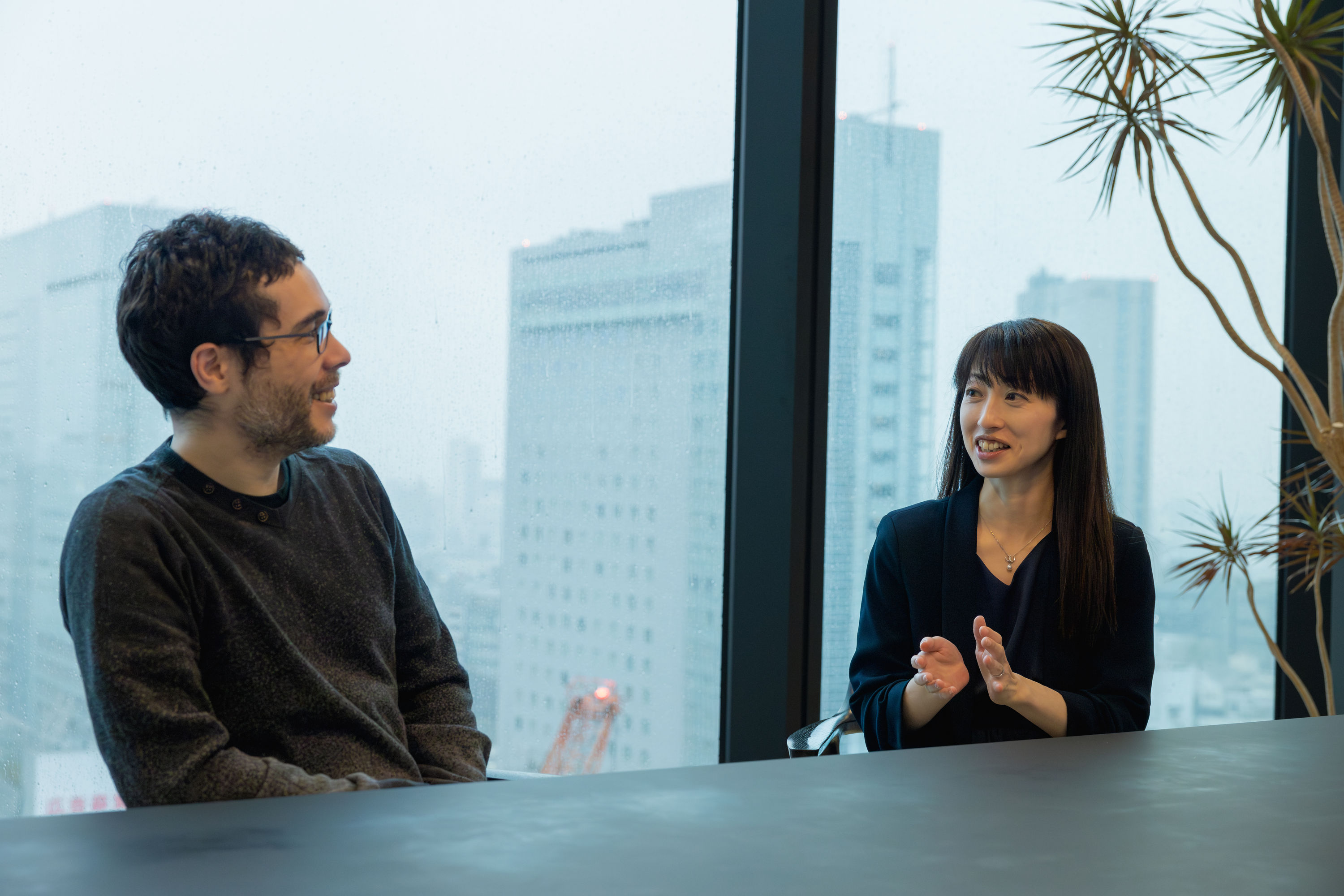
Not Letting Opportunities Slip By While You’re Setting Up in Japan
ー Finally, what advice would you give to companies looking to enter Japan?
Alex: For foreign companies coming to Japan, the biggest challenge is talent right? Even if you have a big budget, it’s still going to take time. Finding the right fit is hard.
In Japan there are so few bilingual people, and unfortunately in some cases, English might be their only skill. For startups where a specific skill set or knowledge is critical, it might take an eternity to fill a position full-time.
I’d really recommend startups consider something like Sollective, where they can kick start their operation in Japan. If you spend six, eight months trying to find your first country manager, the whole market could change in that time.
